Canada in medal position going into final day of the Olympic team event
Canada remains in second place behind Russia in the team event after Tessa Virtue and Scott Moir finished second in the short dance, Kaetlyn Osmond fifth in the women’s short and Kirsten Moore-Towers and Dylan Moscovitch second in the pair free program.
Russia leads with 37 points, to Canada’s 32, while the United States has moved up to third place with 27 points after a dismal first day. Japan and Italy have also qualified.
A twizzle gone awry left Virtue and Moir in second place behind Americans Meryl Davis and Charlie White. Virtue fumbled her rotation on the second of three twizzles, but kept herself upright, stayed on her foot and soldiered on, finished with 72.98 points.
Davis and White finished three points ahead with 75.98 points, giving the United States the impetus it needed to try to win a team medal.
“I had a bobble on the twizzle,” Virtue said. “But our base value is so high that even with that, we’re in good shape.” They received a level four for the twizzle, and with the mistakes, emerged with 5.29 points on that element. Davis and White earned 7.36 for the same thing.
“I might have lost a little bit of speed up to the first one,” Virtue explained. “It wasn’t a mental lapse. I actually recovered. I stayed on the same foot.”
Moir admitted the miscue was a bit disappointing because they wanted to lead their team. Moir is captain of the team, Virtue the assistant. But he said they are still very happy with their performance. They earned level fours on all other elements but the midline step sequence, which was a level three – the same level that Davis and White got for theirs.
“Tessa and I take the team event very seriously,” Moir said. “There’s an Olympic medal on the line.”
Davis said she and her partner were very excited to be able to put the team back in the running for a medal.
“Charlie and I were definitely focused on our performance today.”
White, who is the captain of the U.S. team, said “the beautiful thing about our team is that all our guys know what we need to do.”
“It started before we got out there,” he said. “We had a good mindset and when you can do that, it’s that much easier.”
In the women’s short program, Julia Lipnitskaia, the 15-year-old Russian wunderkid, solidified Russia’s position at the top of the standings with a flawless performance, earning 72.90 points to defeat seasoned veteran Carolina Kostner of Italy, whose “Ave Maria” routine was breathtakingly beautiful. Kostner finished with 70.84 points and a simpler triple-triple combination. The intrepid Mao Asada tried her trademark triple Axel – seriously under-rotated it and fell, landing her back in third with 64.07 points.
Kaetlyn Osmond, competing at her first Olympics, electrified the crowd with a flawless skate, earning 62.52 points, just about half a point behind U.S. veteran Ashley Wagner with 63.10.
Osmond flew into her triple toe loop – triple toe loop combination, earning bonus points for it and actually outpointed Wagner, who had done a more difficult combination, a triple flip- triple toe loop, although she under-rotated the second jump and landed on two feet. That meant Osmond actually scored more points for her simpler triple-triple combo.
Osmond admitted she was a bit nervous before she set foot onto the ice, “but to go out and skate a perfect short program at the Olympics is great and it’s even better to do that for our team.”
A ferocious competitor, Osmond decided to think of the task as any other competition. “The ice is nice and even, though it’s a big stadium and a big event, it felt like I was at home practising,” she said. She went into the jumps with confidence although they felt shaky to her, perhaps because of the excitement, she said.
Before she skated, she was subject to a drug test on the day of the competition – before she skated. “I was in the middle of a nap,” she said, with her “Do Not Disturb” sign on the door. “I knew there was a possibility of it happening,” she said.
For her, the team event is special, with an enthusiastic team behind her in the kiss and cry area. The bench almost tipped over, she said. “That would have been really funny,” she said.
Tiny Lipnitskaia stepped out onto the ice to a spectacle she had never seen before. “There wasn’t any silence for a single second,” she said. “That kind of support made me so happy.”
She heard “RU-SSI-YA” and “Julia” but her coach Eteri Tutberidze, told her to focus on the music all the way through. The background noise was so loud, it couldn’t escape her. She knew she had to be calm.
Kostner, who turned 27 the day of the short program, says she isn’t the type to celebrate it, but finishing second with an inspired skate was the perfect gift. And she did it for her team. “We have to be realistic,” she said. “For us, as a team from a small nation, it is an important opportunity to show that we can do.”
Asada apologized to her teammates for the fall, and was relieved that Japan made it through to the final. “I was unbelievably nervous,” she admitted. “I felt more pressure than I expected. It just wasn’t my performance. I‘ve got to settle my nerves.”
Her triple Axel did not go the way it had gone in practice, she said. She couldn’t land one in the six-minute warm-up. Those miscues followed her into the performance.
FREE PROGRAM PORTION
Strong performances by Kirsten Moore-Towers and Dylan Moscovitch kept Canada in second place after the pairs free skate on Saturday at the Olympics.
Russia is in first place, its lead strengthened by a team that has never been at a world championship, but that took centre stage and won the pairs long program. Ksenia Stolbova and Fedor Klimov skated to a very un-Russian theme, the Addams Family, to win with 135.09 points, about six points ahead of the Canadians with 129.74.
Only five teams returned to the pairs long program after France, China, Germany, Ukraine and Britain did not advance.
Moore-Towers and Moscovitch, skating to a Fellini medley, sped around the ice and impressed with their opening triple twist, and then a triple toe loop – triple toe loop sequence. Their main error came when Moore-Towers planted two hands down on the ice after a triple Salchow. A spin went slightly out of synch, but it was a performance that bolstered the Canadian team.
“It went well tonight,” Moore-Towers said. “There was a little brain fart on my part and I made a mistake that shouldn’t have happened.” They felt a build-up of pressure going into their free skate.
“Everyone wants it so badly,” she said. “We really wanted to do our part to help the team. I feel like the individual event will be easy-breezy after this.”
Klimov said he and his partner felt as huge responsibility but they were ready.
Stefania Berton, suffered an injury during the free skate with her Italian partner Ondrej Hotarek, after falling on a triple Salchow jump. Hotarek helped her off the ice. They had had to take three days off about 10 days ago after a bad fall from a lift, when she initially hurt her hip.
The final day of the team event begins Sunday with the men’s, women’s and ice dance free programs.
Beverley Smith


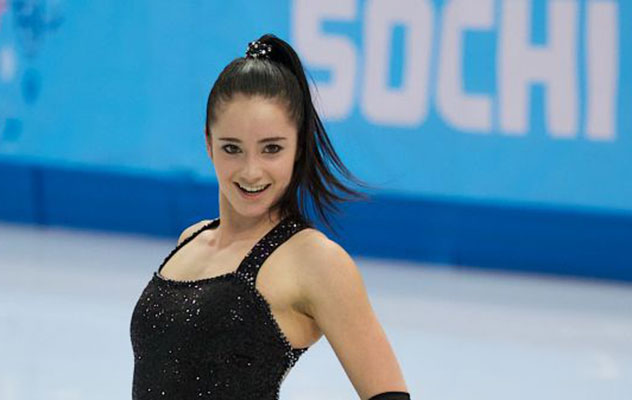
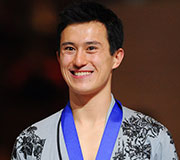
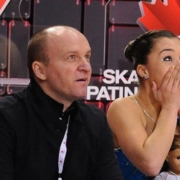
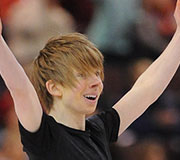
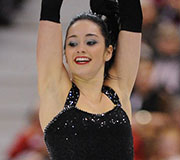

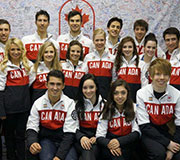
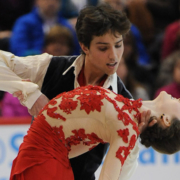
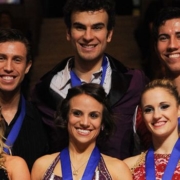


Leave a Reply
Want to join the discussion?Feel free to contribute!